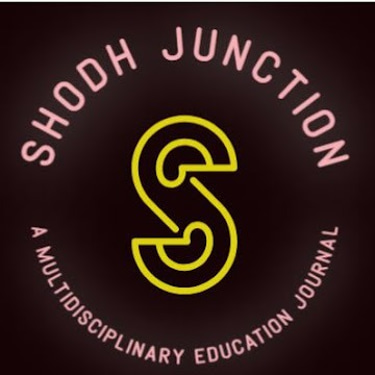A Multidisciplinary Journal promoting diverse academic research across various fields and disciplines.
SUBMISSIONS POLICY ACCEPTED
Shodh Junction invites original, unpublished manuscripts from all academicians, authors, legal professionals and Law students in the following categories:
I. Long Articles (3,500- 8,000 words, Excluding footnotes)
The submission guidelines you've provided outline expectations for articles that engage comprehensively with a specific topic's theme and literature. To meet these expectations, authors should:
Comprehensively Survey Current Practices: Provide an extensive review of existing literature and practices related to the topic.
Identify Lacunae: Highlight finding, gaps or underexplored areas within the current limitattion of body of knowledge.
Offer Innovative Reassessment: Propose novel perspectives or approaches to address the identified gaps.
Provide Constructive Suggestions: Recommend modes and actionable strategies or directions or outcome for future research or practice.
Include Theoretical Contributions: Present theoretical insights or frameworks that contribute to the understanding of the topic.
These elements ensure that the article adds value to the field by advancing knowledge and offering new directions for inquiry or practice.
II. Essays/Short Articles (1,200-3,000 words, Excluding footnotes)
Essays are formal pieces of writing that analyze and discuss a particular issue or topic. They are characterized by:
Subjective Tone: Reflecting the author's personal viewpoint.
Analytical Approach: Engaging critically with the subject matter.
Structured Format: Typically includes an introduction, body paragraphs, and a conclusion
III. Case Notes and Legislative Comments (1000-3500 words)
Case Notes
A case note is a brief commentary on a legal decision, summarizing its facts, issues, ruling, and reasoning, followed by a critical analysis of its significance.
Structure:
Introduction: Introduce the case, including its citation, court, and date. State the legal issue and the significance of the case.
Facts: Summarize the key facts pertinent to the legal issue, Legislative Comments.
Legislative Comments:
A legislative comment is an analysis of a statute or legislative proposal, examining its provisions, objectives, and potential legal and social impacts.
Structure:
Introduction: Present the legislation's title, purpose, and context.
Summary of Provisions: Outline the key provisions and their intended effects.
Analysis: Evaluate the clarity, feasibility, and potential consequences of the legislation.
Comparison: Compare the legislation with existing laws or similar statutes in other jurisdictions.
Conclusion: Summarize the strengths and weaknesses of the legislation, offering recommendations for improvement.










Shodhjunction will be an invaluable resource for many research. The multidisciplinary approach may allows all to explore diverse fields and gain insights from various perspectives.
Dr. Sachin Dixit

★★★★★
Research
Multidisciplinary journal for academic and research articles.
Journal
Publications
admin@shodhjunction.in
© 2025. All rights reserved.
info@shodhjunction.in
